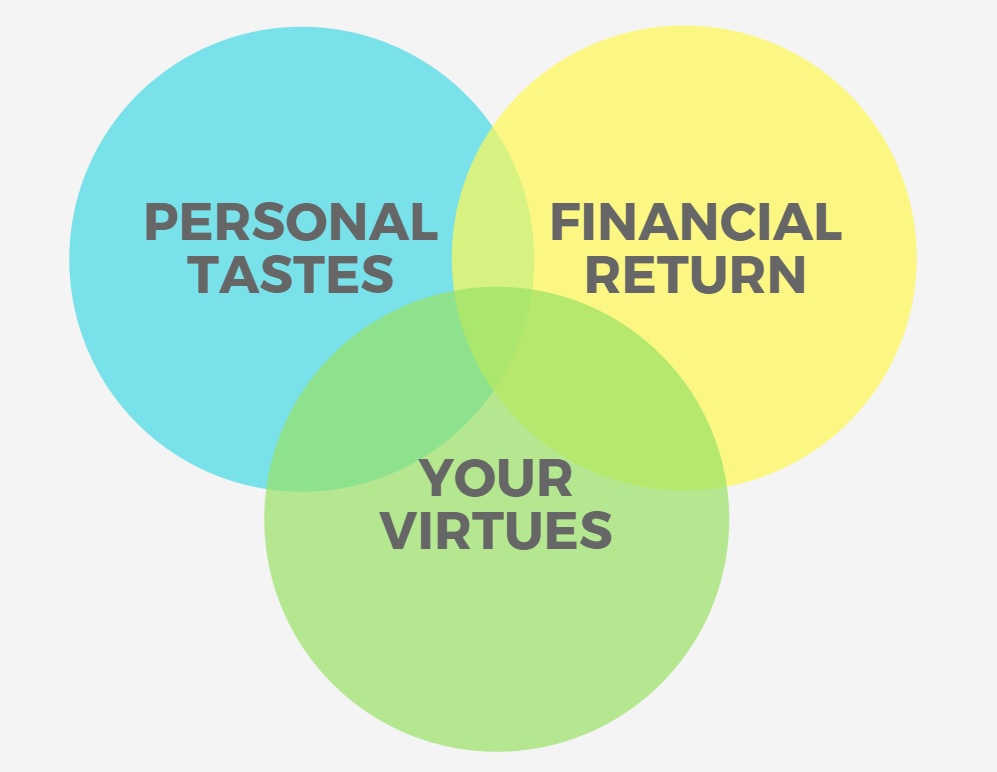Some time ago I wrote an article about the importance of investing in self-knowledge to improve your life. Part of this self-knowledge is about being aware of your strengths and weaknesses, virtues and faults, however you like to call them. In today’s article I’m going to tell you how you can use this information to enjoy a better and more successful life.
There are many definitions for strengths and weaknesses. Put simply, a strength is a positive feature that allows you to stand out from the others. A weakness, on the other hand, is a negative feature that produces the opposite effect. In an ideal world, you would only have strengths, but in practice, things are a bit different…
Imagine these features like personal tools, good and bad, which you use in your daily life, whether at work or in your personal life. On many occasions there will be situations when you will have to use both. The best thing to do is to be well aware of each one and maximize the use of your strengths in detriment of your weaknesses.
I can assure you that the more you are able to do this, the better the quality of life you will have, both professional and personal! With this in mind, I’d like to share with you some ideas to put this proposition into practise. Enjoy!
In order for you to have better chances of success and be happier in your career, it would be wise for you to choose professional routes that demand your best qualities. The more decisive these virtues are towards your professional performance or the success of the organization you work for – and the better you are at them -, the greater your chance of success on this route.
Ideally in this case would be for you to do something that could combine three factors at the same time: your virtues, your personal tastes and good financial return.

Tastes, Virtues and Financial Return Graphic
It works somewhat like this:
This is your simplest route towards professional success and good health throughout your career.
This is not always possible, however, and I know that sometimes you will have to favour financial returns and will be taking a chance when you accept a job or task for which you are not well prepared or that makes demands that are way above your capabilities. The worst-case scenario would be a job that made high demands on you in tasks which would involve your weaker skills, and to make things slightly worse, you don’t enjoy doing.
In cases like these you will tend to omit your faults at a job interview, or at least play them down. That may even be necessary, but I honestly suggest that if that is indeed the case, think very carefully about going ahead and taking this opportunity.
The questions that I, and not the interviewer, will ask you, are: how long do you think you will last in a role that will demand skills from you that you don’t master, which will consequently expose to your weaknesses and limitations? Could this not tarnish your image unnecessarily and jeopardize your career further down the road? Health wise, how will that leave you? Think carefully.
Similarly to what I said before, always attempt whenever possible to get involved with activities at work that demand your best abilities from you. At the same time, be very careful about situations that will demand characteristics and abilities connected to your weaker skills. That is not always easy and sometimes you will find yourself in a dilemma. If, however, you follow the path that favours your strengths, the long-term result will be better and you will lead a happier professional life.

Standing out at work (Photo: UberImages / iStock)
I remember once when a colleague, who had been my subordinate, came to me to ask for help regarding a career move within the company. Her dream at the time was to be promoted to the position of coordinator. At the performance assessment, however, she was told that for that to happen she would need to develop her analytical skills in some project.
My first question to her was: “is your husband still unemployed?” She said yes. I then warned her about the risks involved in this career move; after all, if she really wanted to follow that path, a mere project would not be enough. She would need to seek a function that required a great deal of proficiency in analytical skills and she would have to show outstanding performance. But, this happened to be one of her weaker skills…
The alternative, I suggested, would be to continue to favour operational functions or look for a job at another company where her qualities were necessary for a coordinator’s role. She thanked me and stayed on at her function. A few months later, the company’s biggest sales promotion campaign was placed under her responsibility, something which she not only enjoyed doing but was excellent at. The results were so remarkable that right after the end of the sales promotion, the company decided to create three coordinator positions for that kind of activity.
I remember as if it was yesterday, seeing three managers fighting over who would have her in the coordinator role on their team!
When you are managing a team comprising various people, it is your responsibility to draw the maximum efficiency from that group. In that respect, it is very helpful to identify as soon as possible the limitations of all team members, including yourself.
I say that because it’s very difficult to improve weak skills in a short space of time, especially in critical situations. Imagine how it would be like to discover that you assigned an important activity to a person with severe limitations to perform the task well? Whose fault would it be? His, hers or yours? It makes no difference. You, he, she and the company as a whole will suffer the consequences of a mediocre performance.
Put another way, mapping out the team’s strengths and weaknesses will greatly enhance your ability to delegate. Not only will you obtain more efficiency exploring everyone’s strong points, you will also be able to delegate less critical activities in less demanding situations. In this case, the objective is exactly to train and enable your team according to each member’s weak skills. This generates enormous motivation, as you can confirm in my other article on how to motivate people.

Speedboat (Photo: Jenyateua / iStock)
Right after finishing performance reviews, and at the exact point when we were about to discuss individual development plans, I used an analogy with my teams to suggest that they focus all their energy on further improving their strengths instead of their “gaps”. I would say that each one of them was like a speedboat that had an engine and an anchor.
The engine was what made the speedboat progress in its career, but it was the anchor that prevented it from moving forward, when it hit or wrapped itself around a reef at the bottom of the sea. In the case of one’s job, the engine is your virtue or strength and the fault, or gap, as I frequently called it, is the anchor.
My argument is simple: it is much better to turbocharge your engine in order to pull the anchor free from a rock and speed off, than just bridging the gap. If I just pull the anchor and don’t start up the engine and accelerate, the speedboat will stay in the same place.
Focus on developing your strengths and watch your career take off. Focus on the bridging gaps and you simply won’t move. Guaranteed!
Cover photo credit – United team (Photo: Rawpixel.com / Unsplash)